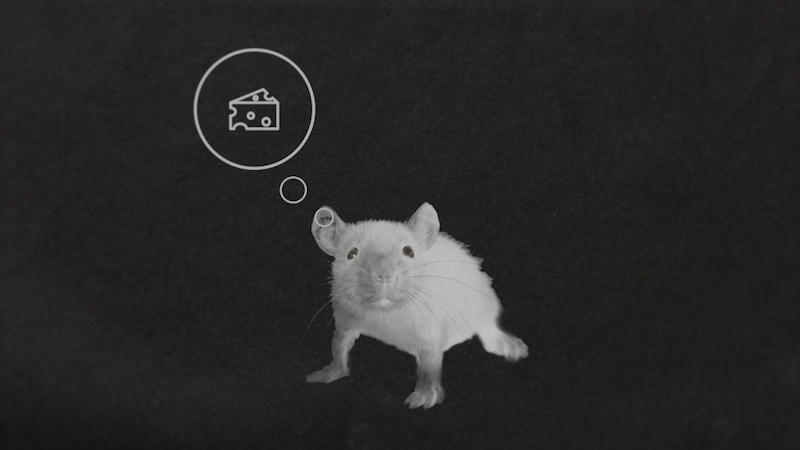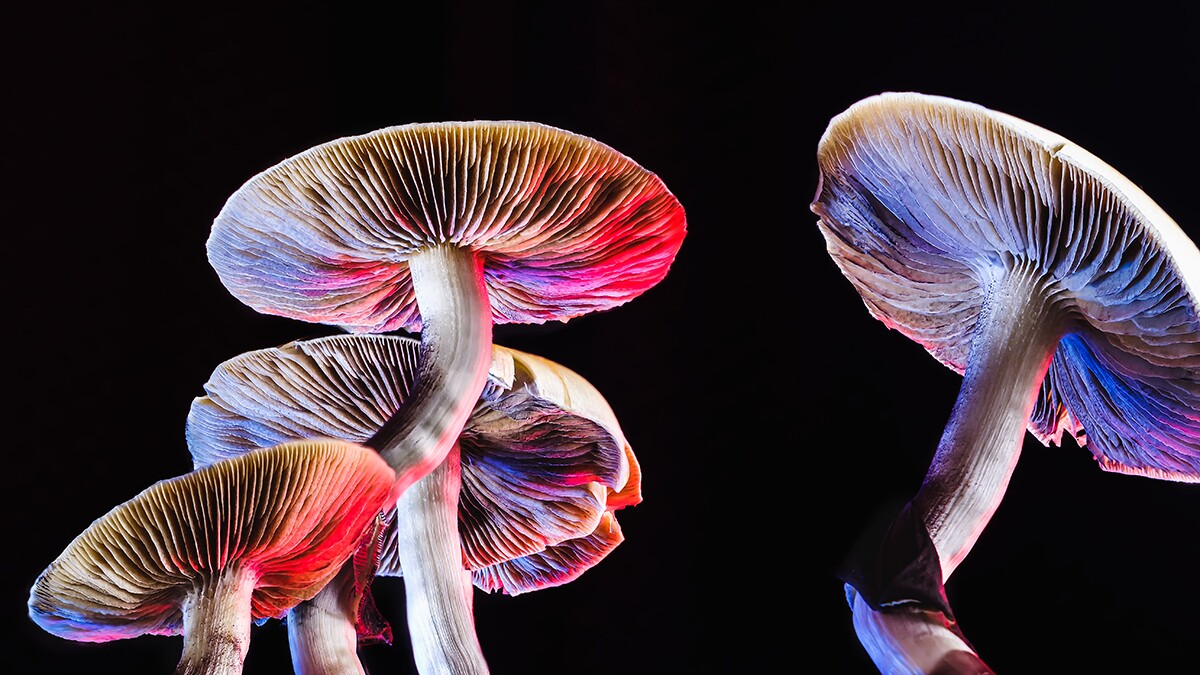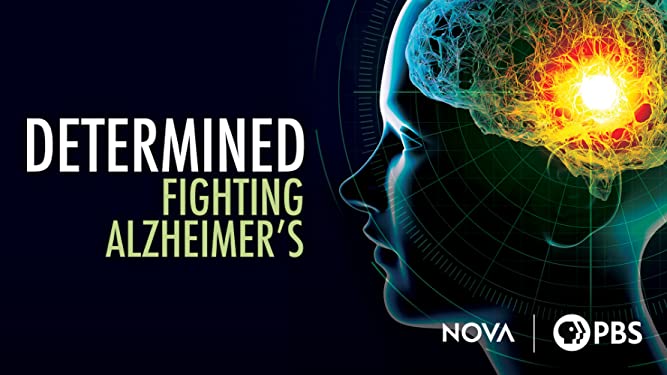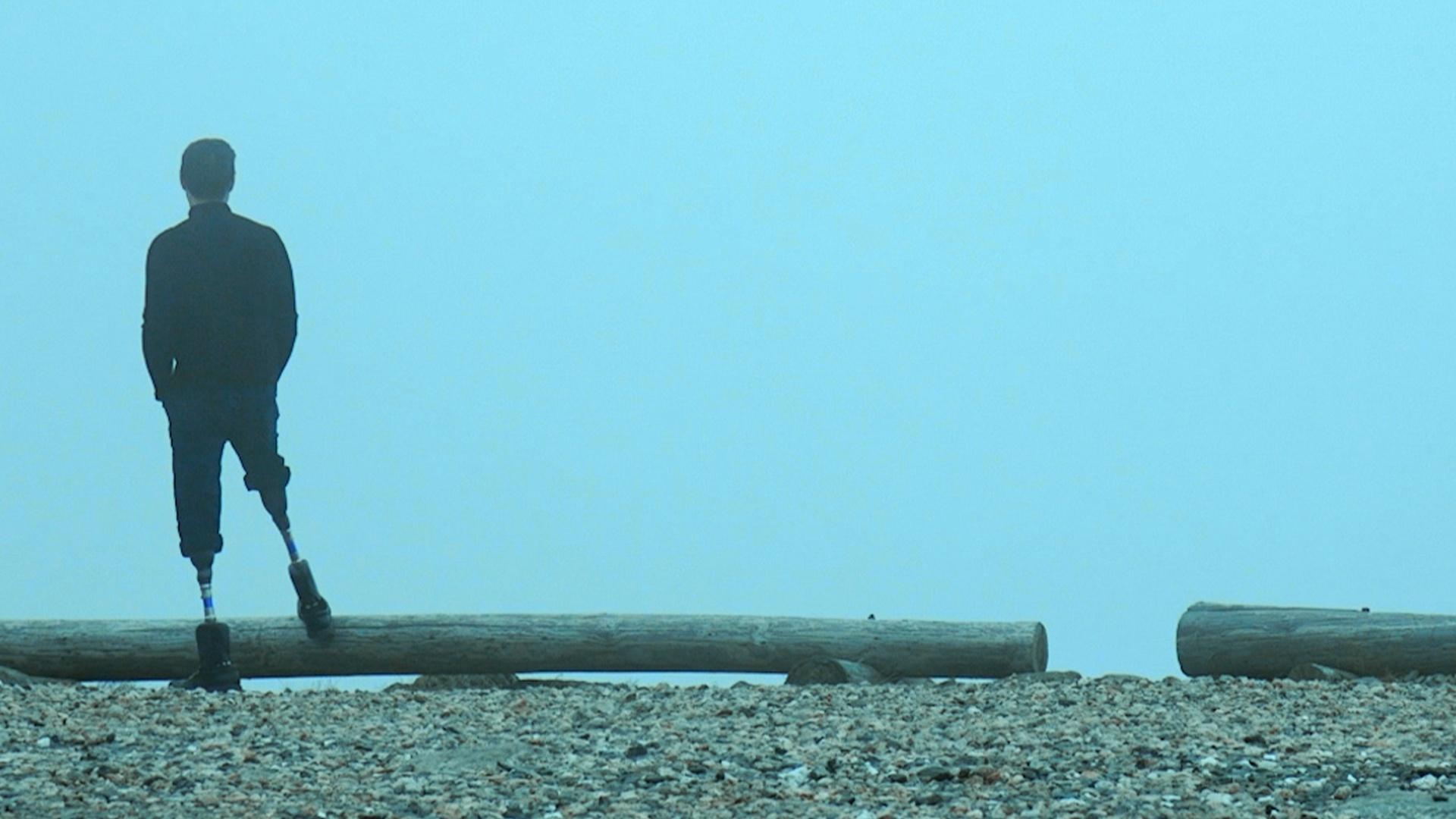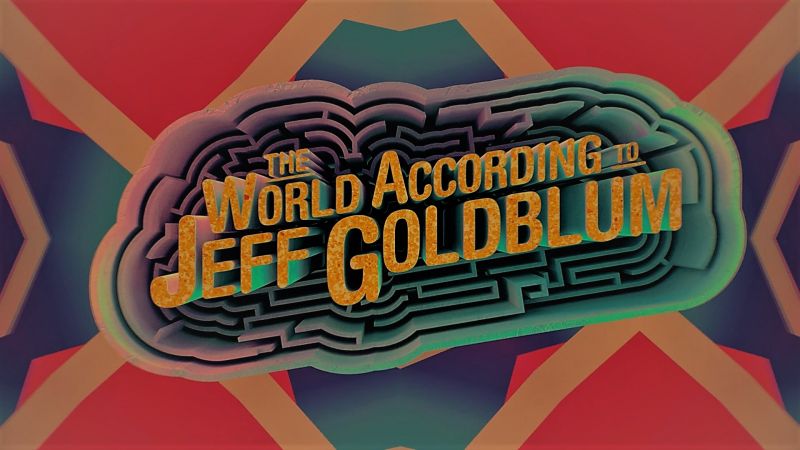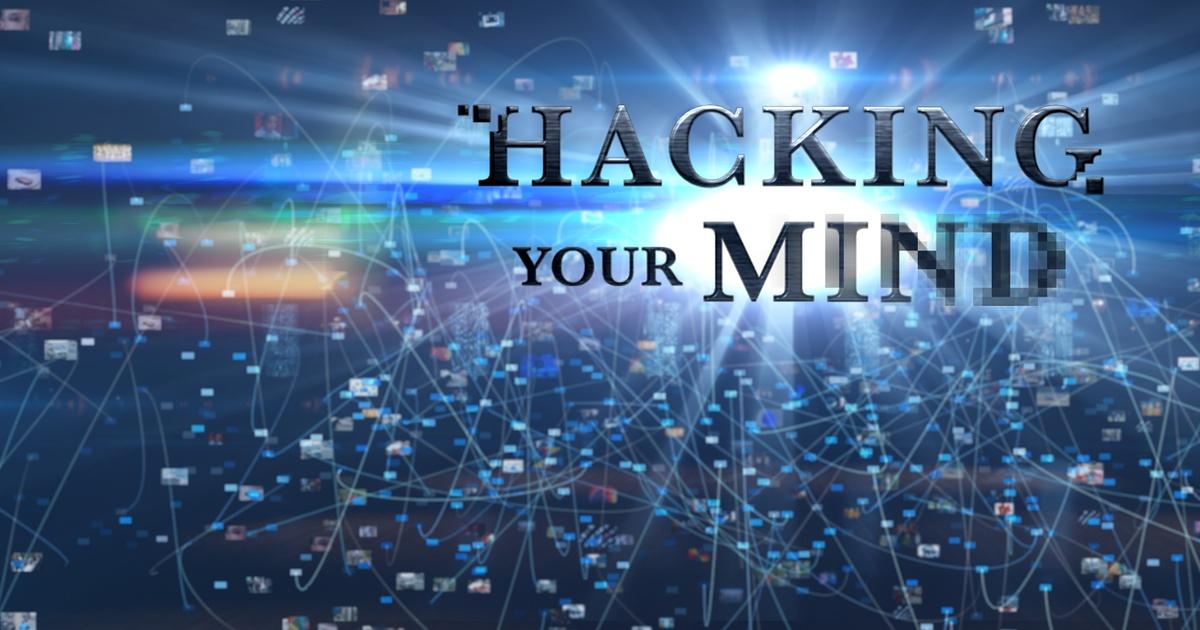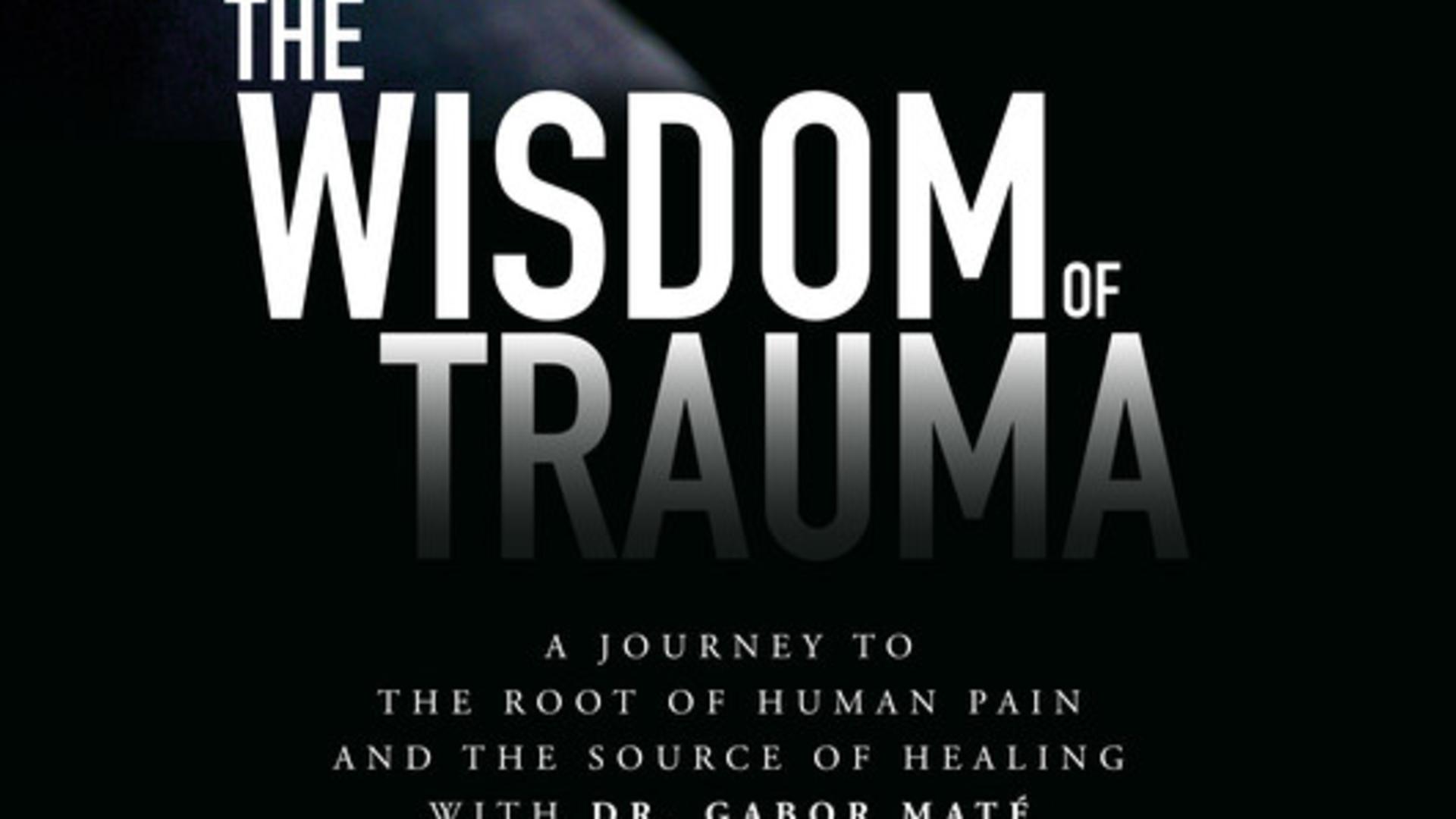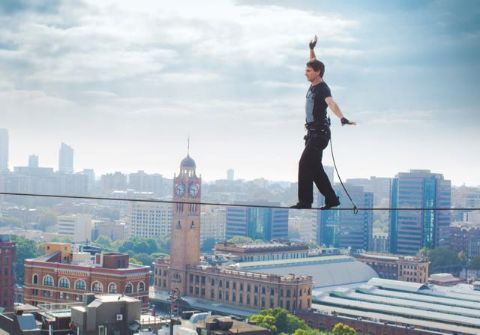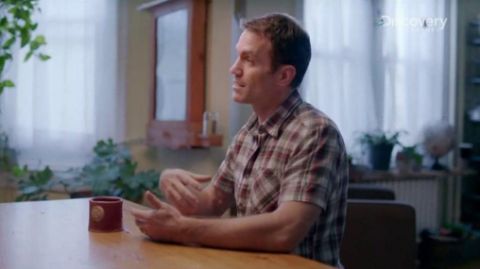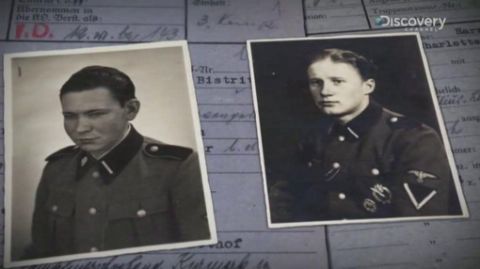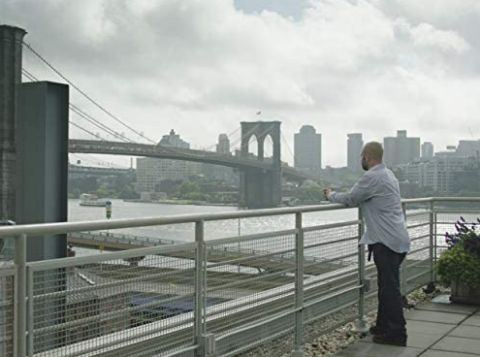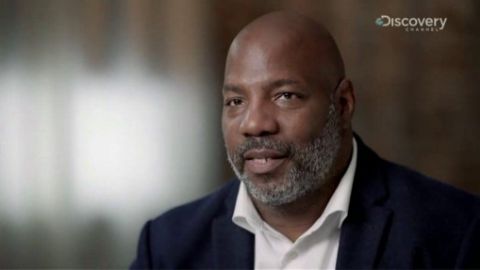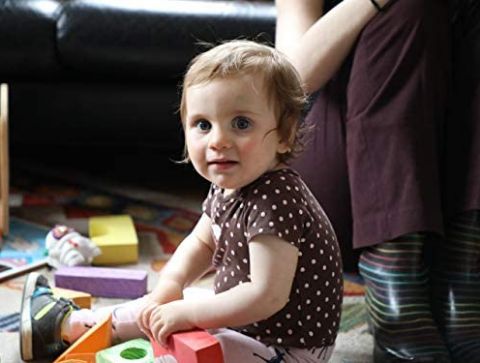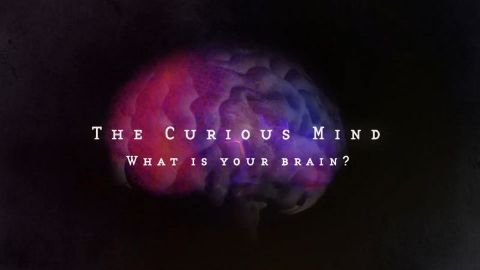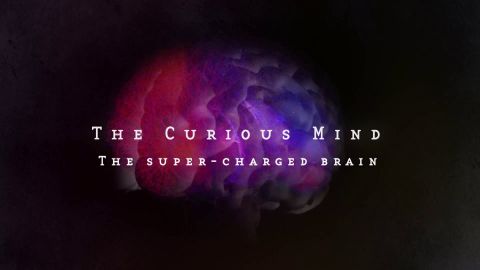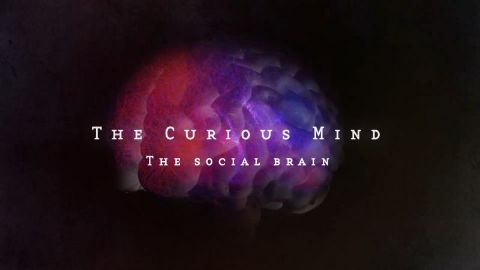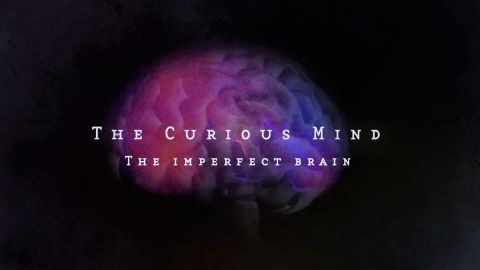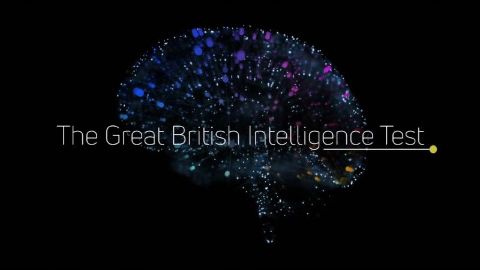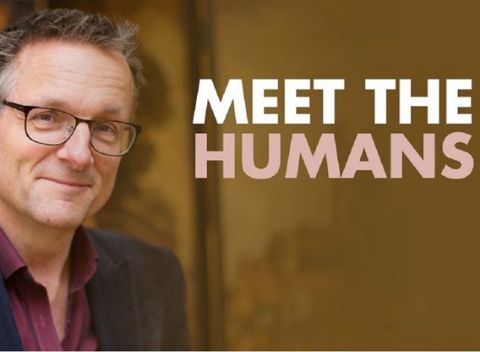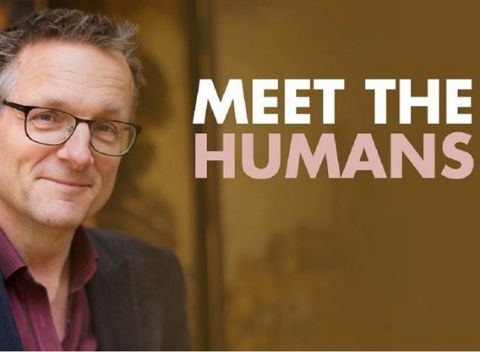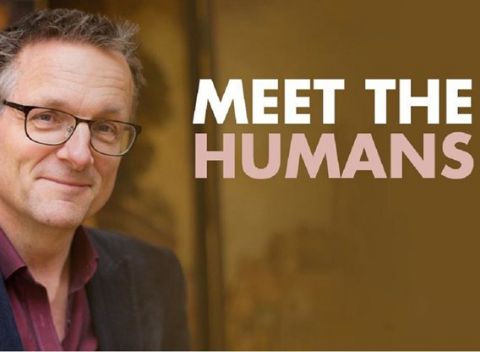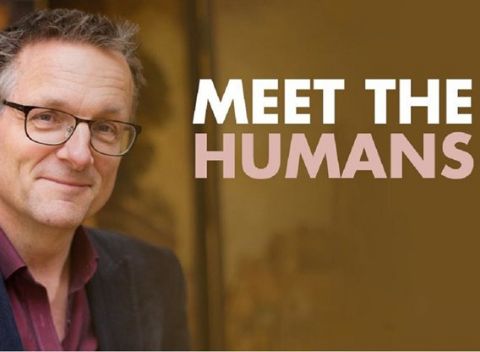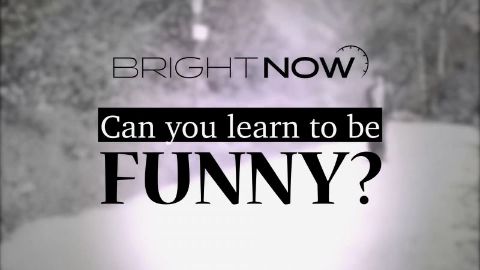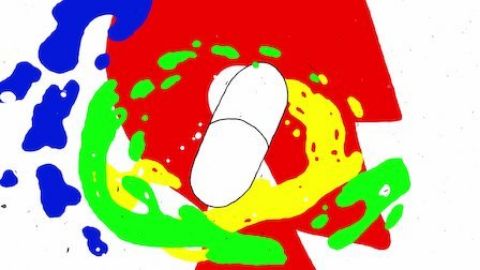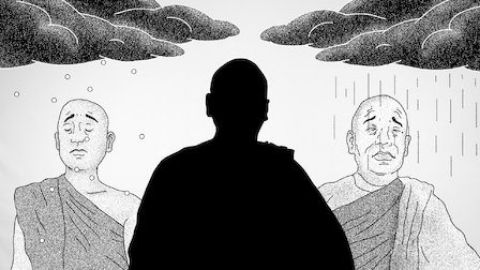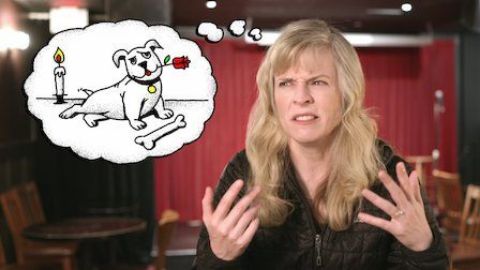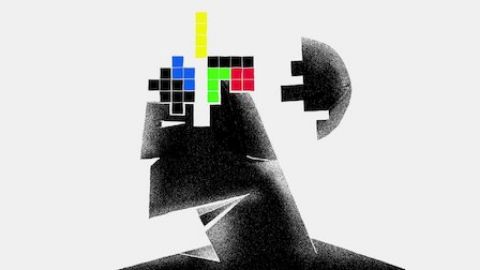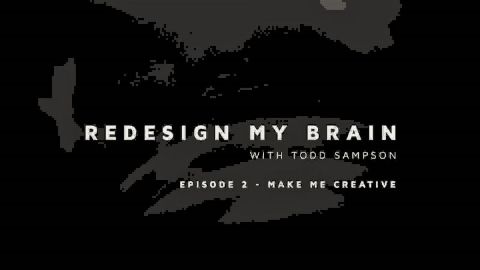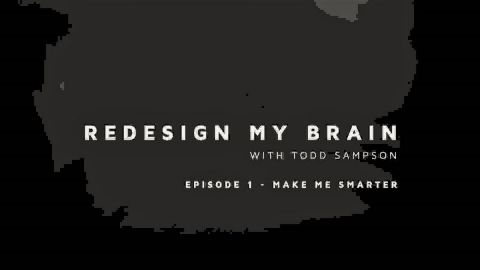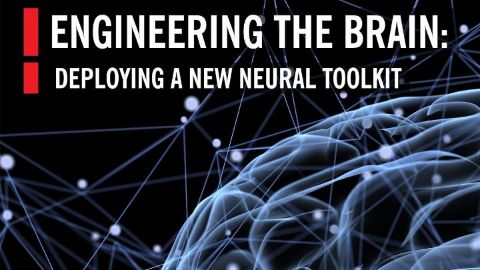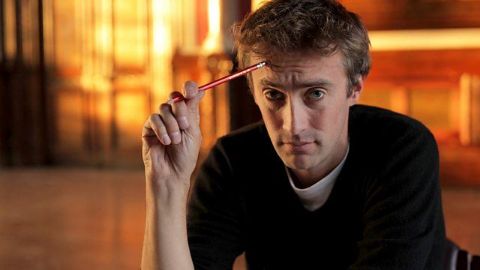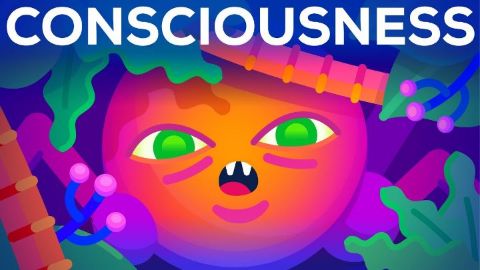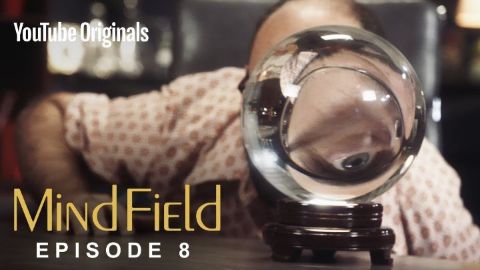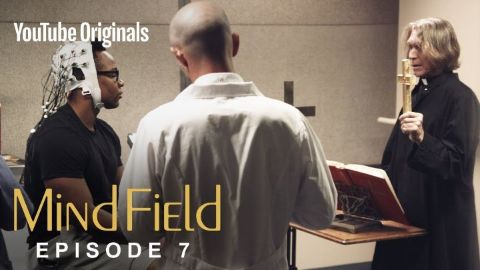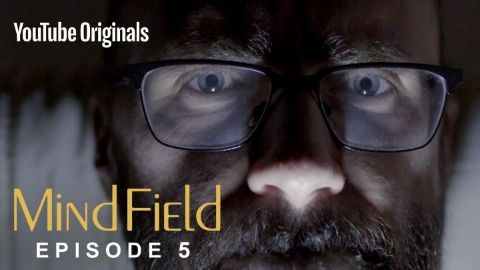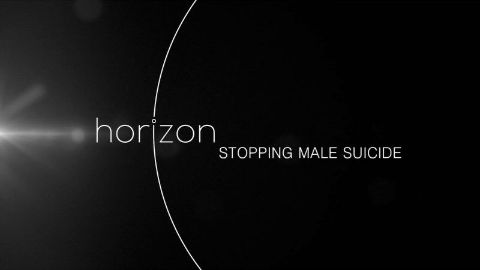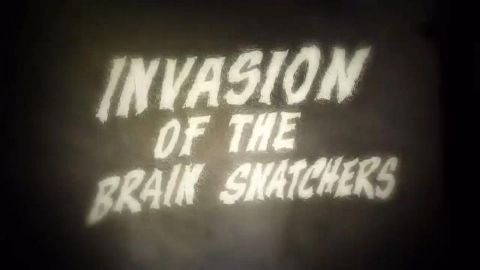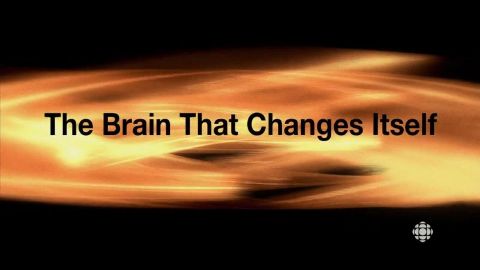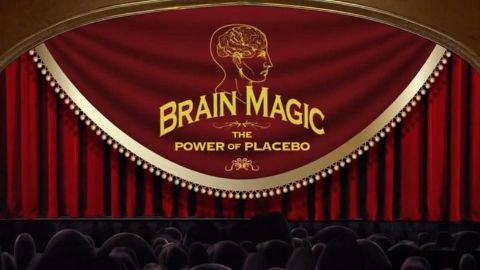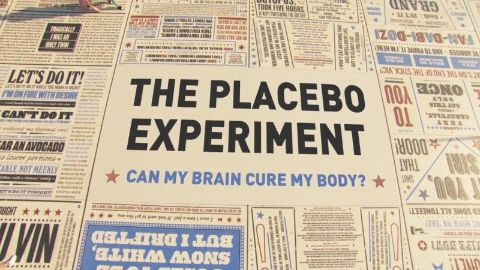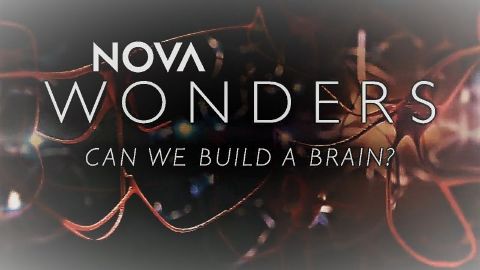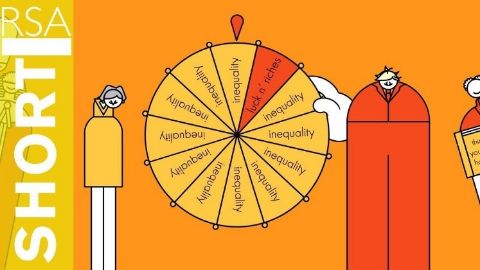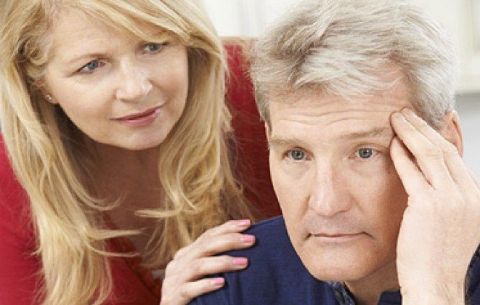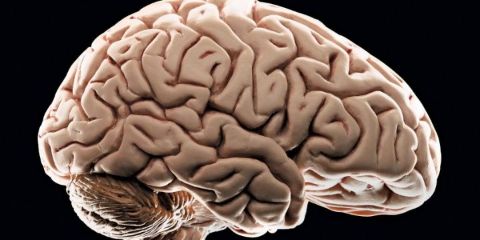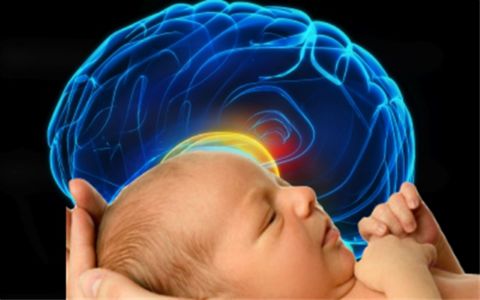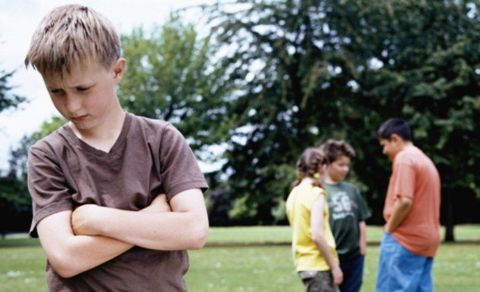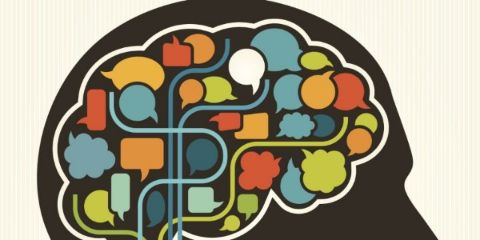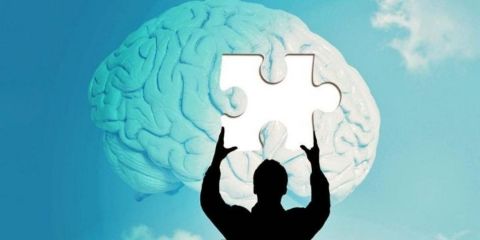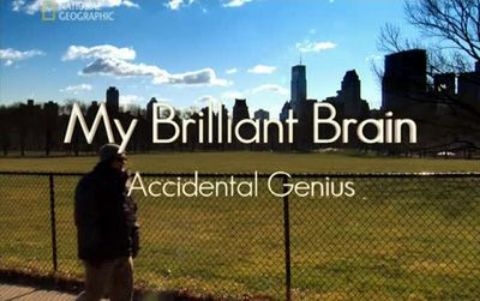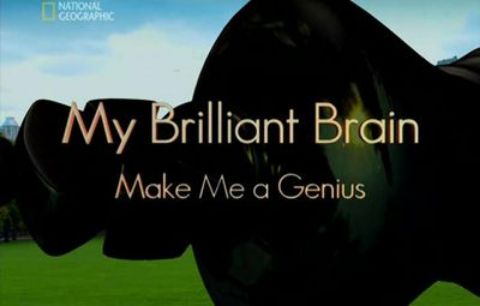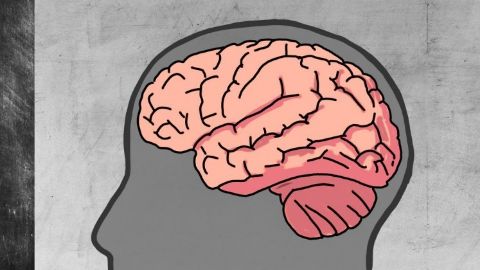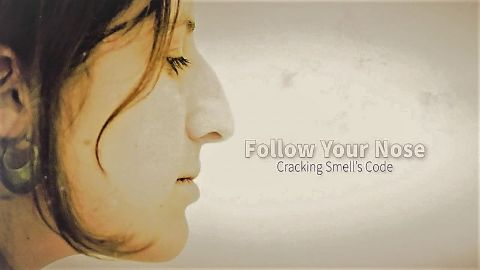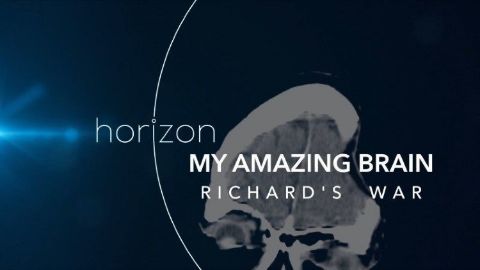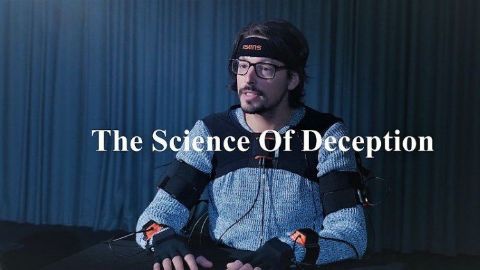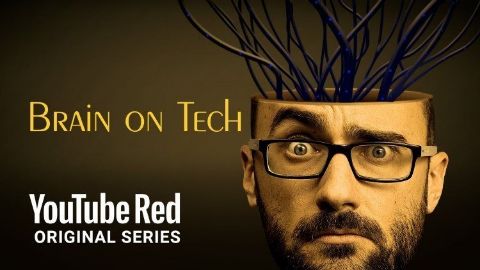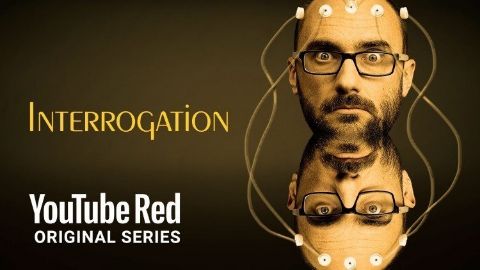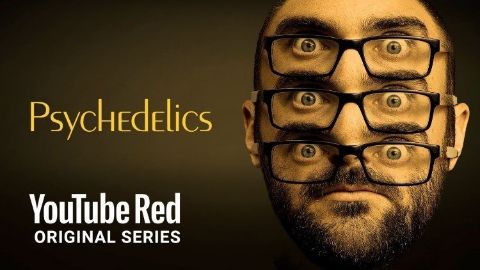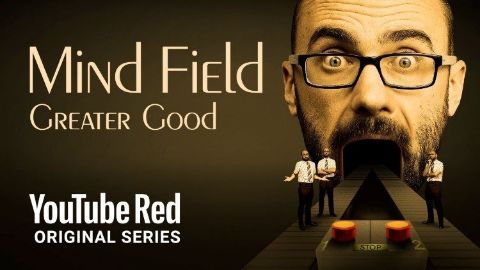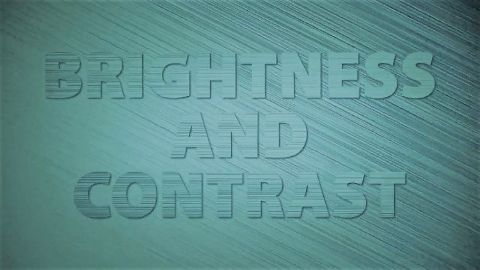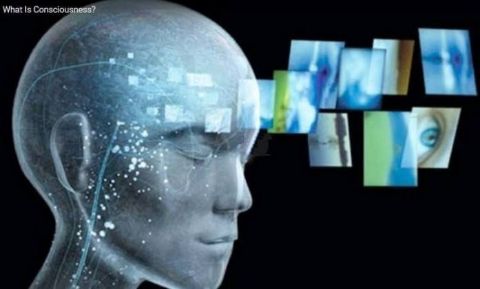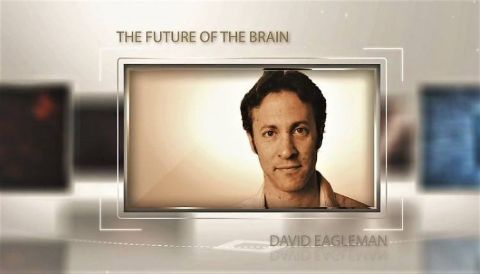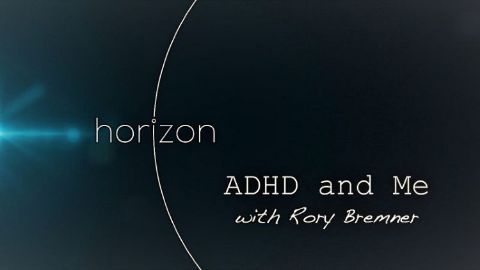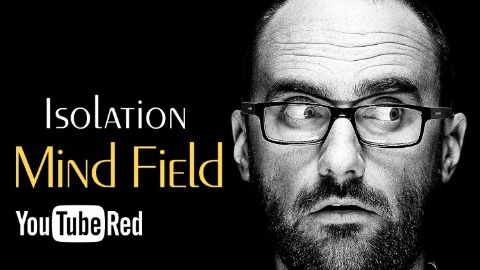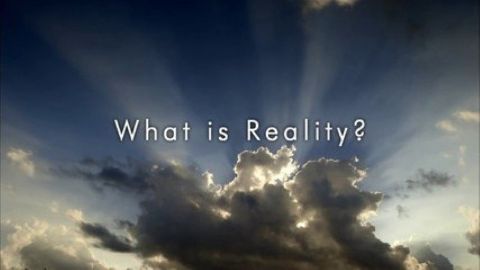BRAIN • 125 videos
Growing evidence suggests that psychedelic drugs could treat brain injuries and psychological problems. But can we get past their controversial history?
S2E4 • History 101 • 2022 • Brain
Are you in control of your brain, or is your brain controlling you? Dive into the latest research on the subconscious with neuroscientist Heather Berlin to see what’s really driving the decisions you make.
S1E2 • Your Brain • 2023 • Brain
Is what you see real? Join neuroscientist Heather Berlin on a quest to understand how your brain shapes your reality, and why you can’t always trust what you perceive. Learn the surprising tricks and shortcuts the brain takes to help us survive.
S1E1 • Your Brain • 2023 • Brain
At the age of 23, David Harewood had a psychotic breakdown and was sectioned. Two years ago he opened up on Twitter about the experience - and now he wants to tell the full story. Travelling back to his home town of Birmingham, the actor lets viewers into the realities of experiencing a psychotic breakdown, and how much he blocked out at the time, meeting up with his mother and old friends who were with him at the time. But this isn't just his story. He also spends time with other young people living with psychosis and the NHS professionals who treat them.
2023 • Brain
Chris Packham helps autistic people illustrate how their minds work, helping them connect with their friends and family in a new, more authentic way. Chapter 1: Since sharing his own autism diagnosis with the world, naturalist and presenter Chris Packham has been flooded with letters and emails from other autistic people, frustrated that their friends, families and co-workers don't understand them. And in this series, Chris wants to bridge the gap. By teaming up with top film-makers, graphic designers, animators and musicians, Chris helps a group of autistic people create short films to reveal to their family and friends how they're truly feeling inside – what's really going on in their autistic minds. He helps an autistic comedian reveal to her mum what's really going on inside her head, gives a non-speaking autistic man the chance to take his message to the world and visits the only state school in the country exclusively for autistic girls. Chapter 2: Chris meets Anton, a teaching assistant and trance DJ with a deep love of Middlesbrough FC, and Ethan, a 19-year-old student and aspiring rapper from Essex. He helps them make films to reveal to their friends and classmates how Anton feels about change and Ethan about hypersensitivity to noise. Chris also meets Dr Luke Beardon, an expert in autistic hypersensitivity, and Dr Punit Shah, who helps him to understand both Anton's restrictive and repetitive behaviours and Chris's own need for order in his life.
2023 • Brain
Hallucinogenic drugs—popularly called psychedelics—have been used by human societies for thousands of years. Today, scientists are taking a second look at many of these mind-altering substances—both natural and synthetic—and discovering that they can have profoundly positive clinical impacts, helping patients struggling with a range of afflictions from addiction to depression and PTSD.
The second episode takes us into a sci-fi world that reminds us of a 'Terminator'-like scenario, where machines are on their way to becoming ’almost human’.
S1E2 • Supersapiens Rise of the Mind • 2017 • Brain
In the first episode, we are exploring technologies that promise to provide humans with superpowers, and witness experiments that are literally changing minds!
S1E1 • Supersapiens Rise of the Mind • 2017 • Brain
Follow Three women at risk of developing Alzheimer’s join a groundbreaking study to try to prevent the disease, while sharing their ups and downs, anxiously watching for symptoms, and hoping they can make a difference. Barb, Sigrid, and Karen all had mothers with Alzheimer’s and witnessed first hand the devastation wrought by the disease, not only on the mind and body, but on patients’ families.
Follow the dramatic personal journey of Hugh Herr, a biophysicist working to create brain-controlled robotic limbs. At age 17, Herr’s legs were amputated after a climbing accident. Frustrated by the crude prosthetic limbs he was given, Herr set out to remedy their design, leading him to a career as an inventor of innovative prosthetic devices.
Jeff puts his brain to the test as he embarks on an adventure with some bona fide geniuses to discover our fascination with puzzles. From working with a team of escape room enthusiasts and landing planes to a wild jazz improvisation session with Shimon, a marimba-playing robot, Jeff discovers how puzzles are more than just a hobby; they are the means through which we solve some of life's greatest problems.
S2E6 • The World According to Jeff Goldblum • 2021 • Brain
(4 episodes merged) Jacob Ward sets out to discover we are not who we think we are. We imagine our conscious minds make most decisions, but in reality we go through much of our lives on "autopilot". Marketers and social media companies rely on it. Hacking Your Mind offers you an autopilot owner's manual.
2020 • Brain
One in five Americans are diagnosed with mental illness every year. Suicide is the second most common cause of death in the US for youth aged 15-24, and kills over 48,300 in the US and 800,000 people globally per year. Drug overdose kills 81,000 in the US annually. The auto-immune disorder epidemic affects 24 million people in the US alone. What is going on? The interconnected epidemics of anxiety, chronic illness and substance abuse are, according to Dr Gabor Mat?, normal - but not in the way you might think.
2021 • Brain
To prove that brain training can overcome fear, Todd uses all his previous brain training to face his fears and achieve the ultimate challenge - a skywalk between two buildings 21 floors high.
S2E3 • Redesign my brain • 2015 • Brain
Todd pushes his senses to the limits to unleash his brain's full potential.
S2E2 • Redesign my brain • 2015 • Brain
Todd uses the latest science to train his brain to become more adaptable. To prove that it's possible, he risks his life rock climbing blindfolded up a 120m rock face in Utah's Moab Desert.
S2E1 • Redesign my brain • 2015 • Brain
The Psychedelic Drug Trial has exclusive access to a ground-breaking new trial at Imperial College London. The trial sees, for the first time ever under controlled conditions, a psychedelic drug tested head-to-head against a standard antidepressant as a treatment for depression. The film follows a pioneering team of scientists and psychotherapists, led by Professor David Nutt, Dr Robin Carhart-Harris and Dr Rosalind Watts, as they compare the effects of psilocybin (the active ingredient of magic mushrooms) with an antidepressant (an SSRI called escitalopram) on a small group of participants with clinical depression. This is scientific research at its most cutting edge. With over seven million people being prescribed antidepressants each year in England alone, this drug trial is an important milestone in understanding a completely different treatment for depression.
2021 • Brain
Neuroscientist David Eagleman taps into the creative process of various innovators while exploring brain-bending, risk-taking ways to spark creativity.
2019 • Brain
Alzheimer's disease -- the most feared of all maladies, with no way to cure, stop or even slow its insidious progression. But now, after decades of perseverance in the lab, researchers are on the cusp of a scientific breakthrough that could be the first step toward making Alzheimer's itself a distant memory. In the gripping new documentary Turning Point, acclaimed filmmaker James Keach takes us inside the quest for the first medication that that could treat the underlying process of Alzheimer's disease, more than a century after Dr. Alois Alzheimer first described the brain disorder that slowly destroys memory and cognitive skills. Along the way, we meet the people behind these grand experiments, the scientists driven as much by personal conviction as professional innovation. And we discover why medical science is never easy, often unpredictable and potentially perilous.
2020 • Brain
Neuroscientist Emile Bruneau explores how we can use our capacity for critical thinking, our brain plasticity, and strategies like education and cooperation to help combat hate.
S1E6 • Why We Hate • 2019 • Brain
International criminal lawyer Patricia Viseur Sellers investigates the role of perpetrators, from leaders to followers, as well as those who resist the power of hate.
S1E5 • Why We Hate • 2019 • Brain
An investigation into hate, produced by Steven Spielberg and Alex Gibney. Extremism expert Sasha Havlicek explores ideological factors that fuel hate and violence.
S1E4 • Why We Hate • 2019 • Brain
Journalist and author Jelani Cobb investigates how 'hate tools' like propaganda, dehumanization, the internet, symbols, and more can incite, amplify and spread hatred.
S1E3 • Why We Hate • 2019 • Brain
An investigation into hate, produced by Steven Spielberg and Alex Gibney. Cognitive scientist Laurie Santos examines how tribalism shapes perceptions of other groups.
S1E2 • Why We Hate • 2019 • Brain
Why do we hate? Humans are capable of love and cooperation --so why do we treat each other with cruelty and violence? Evolutionary anthropologist Brian Hare searches for the origins of hate in our distant past, and in our contemporary environment.
S1E1 • Why We Hate • 2019 • Brain
In the first episode, we explore the apparently very simple question: What is your brain? This is something humans have been struggling to understand for millennia and science for several decades.
S1E4 • The Curious Mind • 2020 • Brain
Our brain is always making decisions - Nigel explores how it does this, and if we can help it to make better ones? Is it possible to change the brain we’re born with to a supercharged brain?
S1E3 • The Curious Mind • 2020 • Brain
The traditional narrative is that humans are selfish. If pushed, the story goes, we look after ourselves first and others later. In this episode, we see how modern neuroscience has blown that myth apart.
S1E2 • The Curious Mind • 2020 • Brain
For most of human history, our brains dealt with pretty straight forward problems. But that brain is the exact same one we now use to post pictures of our pets on social media, fill out Excel spreadsheets, and worry about the next payment on our credit card.
S1E1 • The Curious Mind • 2020 • Brain
Is your smart phone making you stupid? Can you make yourself cleverer? The Great British Intelligence Test measures the brainpower of the nation in one of the largest intelligence experiments of its kind. Devised with leading scientists at Imperial College, London, over 250,000 people around the nation have taken part so far - revealing important new science about the nation’s changing intelligence. Dr Hannah Fry and Michael Mosley put the public to the test, pitting young and old, males and females and tech lovers and readers against each other in a battle of wits. The audience can also play along online at www.bbc.co.uk/intelligencetest The results reveal new science about how our intelligence changes through our life. Which mental abilities peak in our 80s? And when can adults be outsmarted by ten-year-olds? It explores how our gender can affect our intelligence and uncovers groundbreaking new science on how our lifestyle and love of technology is changing our brain. Which of our digital habits are improving our mental abilities and which are harming us?
Michael Mosley and a team of experts place human behaviour under the microscope. In the final episode, Michael and scientists Dr Jack Lewis and Dr Jennifer Wild explore the biology of fear and anxiety in the modern world. Fear is one of our most basic human emotions. In the past, it kept us from being eaten by a wild animal. But today, that isn't so much of a threat and yet we live in a state of anxiety - it's becoming unhealthy.
S1E5 • Meet the Humans • 2017 • Brain
Michael Mosley and a team of experts place human behaviour under the microscope. Tonight, Michael uncovers what makes us so competitive and explores the strategies we use to win. He analyses our competitive group with the help of sports scientists, Dr Greg White and Dr Faye Didymus. How far will the six participants go to come out on top?
S1E4 • Meet the Humans • 2017 • Brain
A plush country house is fixed with surveillance cameras while a group of unwitting test subjects - former pupils of a UK school - are first exposed to youthful memories to test if it can improve their health. This episode looks at how we behave in groups and puts our notions of hierarchy to the test.
S1E3 • Meet the Humans • 2017 • Brain
In today's world, looks count especially with the popularity of social media. In this episode, Dr Michael Mosley invites 10 singletons to the country house on a dating weekend with a difference. He strips down the dating game to animal attraction and puts their very basic instincts to the test. With the help of behavioural psychologist Tracey Cox and dating expert Emma Kenny
S1E2 • Meet the Humans • 2017 • Brain
A plush country house is fixed with surveillance cameras while a group of unwitting test subjects are first exposed to youthful memories to test if it can improve their health. Dr Mosley takes them on this nostalgia trip with the help of neuroscientist Dr Jack Lewis and psychologist Anna Machin to determine how reliable memories really are.
S1E1 • Meet the Humans • 2017 • Brain
What do you get when you cross a clown teacher, a comedian and neuroscientist? Surprising new insights about what it takes to be funny.
Bright Now • 2020 • Brain
What happens to a brain on psychedelics? Turn on, tune in and drop out on this trip to explore the history and effects of mind-altering substances.
S1E5 • The Mind, Explained • 2019 • Brain
Take a deep, cleansing breath and slowly exhale while being enlightened on the impact meditation can have on your mind and body.
S1E4 • The Mind, Explained • 2019 • Brain
Feeling anxious? You're not alone. Stand-up comedian Maria Bamford shares her personal experience with OCD in this examination of anxiety disorders.
S1E3 • The Mind, Explained • 2019 • Brain
Why do we dream? When the lights go out, interesting things happen in the brain and body. What’s the significance of dreams, and what can they teach us?
S1E2 • The Mind, Explained • 2019 • Brain
How does remembering work? Delve into the way the brain stores, processes and retrieves memories -- and why certain ones sometimes prove unreliable.
S1E1 • The Mind, Explained • 2019 • Brain
Todd puts brain training to the test in Make Me Creative, as he trains his brain to be more creative, innovative and to think more laterally, before attempting a creative art challenge.
S1E2 • Redesign my brain • 2013 • Brain
Todd Sampson puts brain training to the test. A pioneer in the neuroplasticity revolution, Michael Merzenich, mentors Todd, showing him how to radically improve his cognition by turbocharging his thinking speed, attention and memory.
S1E1 • Redesign my brain • 2013 • Brain
A new generation of technology is revolutionizing neuroscience, allowing a closer study of the brain than had ever seemed possible. The techniques are hybrids of optics, genetics, and synthetic biology with the ability to manipulate brain activity, often in real time. Through direct stimulation of neural connections, some of these techniques hold the promise for the treatment of diseases like depression or schizophrenia.
World Science Festival • 2019 • Brain
Dallas Campbell delves into the Horizon archive to discover how our understanding of intelligence has transformed over the last century. From early caveman thinkers to computers doing the thinking for us, he discovers the best ways of testing how clever we are - and enhancing it.
2011 • Brain
Consciousness is perhaps the biggest riddle in nature. In the first part of this three part video series, we explore the origins of consciousness and take a closer look on how unaware things became aware.
In a Nutshell • 2019 • Brain
In this episode I visit a researcher who is studying memory by using machine learning and neuroimaging to detect and predict people's brain states. I also travel to Japan to meet with a team working on ways to record the content of peoples’ dreams.
S3E8 • Mind Field • 2019 • Brain
How can a lie become true? In this episode, Dr. Aaron Blaisdell and I create a game show that is actually a giant “human Skinner Box” to observe the formation of superstitious beliefs. And Dr. Samuel Veissière helps me design and perform a placebo reverse exorcism, harnessing the power of belief in both science and religion to convince normal people that a spirit has possessed their bodies.
S3E7 • Mind Field • 2019 • Brain
Are we alone in the universe? Even if we could contact aliens, what would we say? How would we say it? And, most importantly, should we even be trying to make contact at all? This episode takes me on a journey to compose and send my own personal message into outer space.
S3E6 • Mind Field • 2019 • Brain
If I could live forever, should I? How does being reminded of our own mortality affect us psychologically? In this episode I speak with mortician and death positivity activist Caitlin Doughty and visit a cryonics facility trying to extend human life indefinitely. Will I take them up on their offer, or will I choose to die?
S3E5 • Mind Field • 2018 • Brain
Normal people can become monsters, given the right situation. That’s the standard narrative of the Stanford Prison Experiment, one of the most famous psychological experiments of all time. But what if the cause of its participants’ cruel behavior wasn’t what we’ve always been told?
S3E4 • Mind Field • 2018 • Brain
There are 100 billion individual neurons in the human brain. Working together, they allow us to make sense of, and move through, the world around us. Scientists have built replicas of the human brain with computers, but no one has ever successfully made a brain out of humans. On this episode, I’ll travel back to my hometown of Stilwell, Kansas, and turn it into a working brain!
S3E3 • Mind Field • 2018 • Brain
How are our moral decisions influenced by factors we’re not aware of? A phenomenon known as Moral Licensing claims that when we do something good, we often subconsciously allow ourselves to then do something bad. In this episode, I take a look at whether those who donate money to charity become more likely to let a kid take the blame for a crime they know they committed.
S3E2 • Mind Field • 2018 • Brain
Humans are the only Earthlings with complex language. But at what cost was that ability acquired? In this episode, I visit Tetsuro Matsuzawa to learn about his influential cognitive tradeoff hypothesis.
S3E1 • Mind Field • 2019 • Brain
Imagine a world in which you can think but cannot speak. For many stroke survivors, like former football star Junior and landlord Barry, this nightmare is a reality. Inspired by the experience of his brother-in-law, filmmaker Richard Alwyn has made an intensely moving, personal film about language and its loss. Alwyn's brother-in-law, journalist Dennis Barker, had a stroke in 2011 which left him speaking a bizarre, fluent gibberish – just one manifestation of the condition ‘aphasia' in which people lose or have a severely impaired ability to use language. Speechless tells the powerful stories of two men who can no longer take language for granted. Much of the film is made on the Neuro Rehab Unit of the National Hospital for Neurology and Neurosurgery in London's Queen Square. There, Alwyn meets 55 year old Barry who has been in hospital for 4 months since a stroke left him barely able to speak. Courageous and determined, Barry's personality constantly triumphs where his language fails. And two years after his stroke when just 35 years-old, former Premier League and international footballer Junior Agogo is still visiting the Unit as he battles to find his way in the world with depleted language. “I had thoughts but I'm saying, where was my voice? I was baffled, man.” Speechless raises questions that straddle philosophy and science. Can we understand the world if we don't have language to name and describe it? Can we think without language? How much is our identity wrapped up in language? These questions are at the heart of conversations that Alwyn has with clinicians and therapists working to get Barry and Junior back into the world. Speechless is fascinating and moving, upsetting and uplifting in its depiction of the isolating and estranging condition, aphasia.
2017 • Brain
Suicide is the biggest killer of men under 50 in the UK - causing more deaths in this group than car accidents, and even more than cancer. This means that the most likely thing to kill Dr Xand Van Tulleken is himself. And he wants to know why. Xand finds out what we know about why people develop suicidal thoughts, and whether there is anything that we can do about it.
We like to believe we’re in control. But if what we’re discovering about parasites is anything to go by, who is really in control is a lot more complicated, and a lot more interesting, than we ever imagined. So let “The Nature of Things with David Suzuki” help you get over the ick factor, and explore the world of parasites. So let “The Nature of Things with David Suzuki” help you get over the ick factor, and explore the world of parasites. Scientists have collected hundreds of examples of parasites that brainwash their hosts. And now researchers are starting to untangle these parasites’ evolutionary tricks of the trade. In the coastal estuaries of California, Professor Kevin Lafferty of the United States Geological Survey introduces us to a flatworm that lives in three hosts - a snail, a fish and a bird. This parasite’s influence is so profound that it tips the balance of the local ecosystem
S53E05 • The Nature of Things • 2013 • Brain
Join us as we explore the revolutionary science of "neuroplasticity" - a concept that expands not just our knowledge of how our brains work, but how we use them. For centuries the human brain has been thought of as incapable of fundamental change. People suffering from neurological defects, brain damage or strokes were usually written-off as hopeless cases. But recent and continuing research into the human brain is radically changing how we look at the potential for neurological recovery. The human brain, as we are now quickly learning, has a remarkable ability to change itself - in fact, even to rewire itself. The Brain that Changes Itself, based on the best-selling book by Toronto psychiatrist and researcher Dr. Norman Doidge, presents a strong case for reconsidering how we view the human mind.
S48E08 • The Nature of Things • 2008 • Brain
What if each of us could make the symptoms of an illness disappear? Cast a spell so powerful it would actually rid us of pain, help us walk, or breathe better? For centuries placebos have been thought of as fake medicine involving trickery and deceit, but Brain Magic: The Power of Placebo pulls back the curtains on the proof that placebos can have powerful – and real – effects on our mind and body. New research is proving that everything from sugar pills, to saline injections, to sham surgery, can have real healing power. Placebos won’t shrink tumours or cure diabetes, but they can be effective in subjective conditions – where self-appraisal plays a role. And, as we’ll discover in Brain Magic, neuroscience is revealing how our bodies’ response to treatment is heavily influenced by our expectations, prior experiences, our beliefs, and the social cues that surround us.
S53E04 • The Nature of Things • 2015 • Brain
Could the power of fake pills be used to treat some of our most common medical complaints? To find out, Dr Michael Mosley embarks on Britain's largest ever trial to investigate the placebo effect. He is heading to Blackpool to gather 117 people suffering from backache - one of the leading types of chronic pain - before trying to treat them with nothing but fake pills and the power of the mind. Working with experts from the University of Oxford, Michael discovers that the placebo effect is more than just a medical curiosity. The brain is actually capable of producing its own drugs, and these can be more powerful than prescription painkillers. Michael's volunteers come from all walks of life, but they have all suffered with bad backs for years and feel their conventional medication isn't up to the job. They include Stacey, who is struggling to keep up with her two energetic daughters, wheelchair user Jim, who longs to be able to get back on a boat, and poker player Moyra, who is looking for a painkiller which doesn't affect her performance. They think they are taking part in the trial of a powerful new painkiller, but their blue and white capsules actually contain nothing but ground-up rice. Can this fake treatment make a real difference? And how will the volunteers react when Michael reveals the truth? Michael also finds out about some remarkable placebo experiments from around the world, including a woman in Oxfordshire who experienced a near-miraculous recovery after undergoing fake surgery to fix her chronic shoulder pain. Plus a team in Lancashire who want to see if the placebo effect can cure a broken heart. And Michael discovers a team in Germany working on a placebo that works even if you know you are taking it, which might improve the lives of transplant patients. Michael also tests this out on himself - attempting to train his own body to respond to a fake treatment - a foul-tasting green drink - as if he were taking actual drugs.
Artificially intelligent machines are taking over. They’re influencing our everyday lives in profound and often invisible ways. They can read handwriting, interpret emotions, play games, and even act as personal assistants. They are in our phones, our cars, our doctors’ offices, our banks, our web searches…the list goes on and is rapidly growing ever longer. But how does today’s A.I. actually work—and is it truly intelligent? And for that matter, what is intelligence? The world’s brightest computer programmers are trying to build brighter machines by reverse-engineering the brain and by inventing completely new kinds of computers, with exponentially greater speed and processing power. NOVA Wonders looks at how far we’ve come and where machines are headed as their software becomes ever more…cerebral. How close are we from a world in which computers take over—from diagnosing cancer to driving our cars to targeting weapons? If we place more and more of our lives under the control of these artificial brains, what are we putting at risk?
Nova Wonders • 2018 • Brain
Are we wholly responsible for our actions? We don’t choose our brains, our genetic inheritance, our circumstances, our milieu – so how much control do we really have over our lives? Philosopher Raoul Martinez argues that no one is truly blameworthy. Our most visionary scientists, psychologists and philosophers have agreed that we have far less free will than we think, and yet most of society’s systems are structured around the opposite principle – that we are all on a level playing field, and we all get what we deserve.
RSA Shorts • 2017 • Brain
The latest discoveries in neuroscience present a new view of how the brain ages. Overturning decades of dogma, scientists recently discovered that even into our seventies, our brains continue producing new neurons. Scientists no longer hold the longstanding belief that we lose vast numbers of brain cells as we grow older. The normal aging process leaves most mental functions intact, and may even provide the brain with unique advantages that form the basis for wisdom. The aging brain is also far more resilient than was previously believed.
S1E5 • The Secret Life of the Brain • 2002 • Brain
The adult brain is the apotheosis of the human intellect, but what of emotion? The study of emotion was once relegated to the backwaters of neuroscience, a testament to the popular conception that what we feel exists outside our brains, acting only to intrude on normal thought. The science has changed: Emotion is now considered integral to our over-all mental health. In mapping our emotions, scientists have found that our emotional brain overlays our thinking brain: The two exist forever intertwined.
S1E4 • The Secret Life of the Brain • 2002 • Brain
When examining the adolescent brain we find mystery, complexity, frustration, and inspiration. As the brain begins teeming with hormones, the prefrontal cortex, the center of reasoning and impulse control, is still a work in progress. For the first time, scientists can offer an explanation for what parents already know -- adolescence is a time of roiling emotions, and poor judgment.
S1E3 • The Secret Life of the Brain • 2002 • Brain
A child's brain is a magnificent engine for learning. A child learns to crawl, then walk, run and explore. A child learns to reason, to pay attention, to remember, but nowhere is learning more dramatic than in the way a child learns language. As children, we acquire language -- the hallmark of being human.
S1E2 • The Secret Life of the Brain • 2002 • Brain
A baby's brain is a mystery whose secrets scientists are just beginning to unravel. The mystery begins in the womb -- only four weeks into gestation the first brain cells, the neurons, are already forming at an astonishing rate: 250,000 every minute.
S1E1 • The Secret Life of the Brain • 2002 • Brain
Why is a party one of the most demanding and complex situations the human mind ever has to deal with? This programme investigates the extraordinary way that our minds work to allow us to communicate with other people.Professor Winston discovers how we recognise people, read their faces and bodies to understand what they’re thinking, and then charm them.Find out how to tell whether a smile is genuine, what happens when people 'click' with one another, and how to spot when someone's lying.
S1E3 • The Human Mind • 2017 • Brain
Personality explores what it is that makes us who we are and uncovers the universal battle we face to master our emotions and control our behaviour. Professor Robert Winston explores how our minds shape our personalities throughout our lives, and reveals how personality traits like extroversion and introversion develop.
S1E2 • The Human Mind • 2007 • Brain
The first programme in the series uncovers what happens in our minds when we learn, remember and have original ideas. It explores what we can do to improve our ability to learn and manipulate knowledge, and shows how eating fish oils can boost our brain power.
S1E1 • The Human Mind • 2007 • Brain
Marc Yu is only seven years old but at the age of three he could play Beethoven on the piano. Could he have been born with a brilliant brain making him a true child genius?
S1E3 • My Brilliant Brain • 2007 • Brain
Can brain damage make you brilliant? George Widener is autistic, but he has a remarkable ability to remember days and dates in history. Follow his genius story
S1E2 • My Brilliant Brain • 2007 • Brain
At 38 years old, Susan Polgar has reached heights that few women have ever equalled in the chess world. Despite the common assumption that men’s brains are better at understanding spatial relationships, giving them an advantage in games such as chess, Susan went on to become the world’s first grandmaster. Susan’s remarkable abilities have earned her the label of ‘genius’, but her psychologist father, Laszlo Polgar, believed that genius was “not born, but made”. Noting that even Mozart received tutelage from his father at a very early age, Polgar set about teaching chess to the five-year-old Susan after she happened upon a chess set in their home. “My father believed that the potential of children was not used optimally,” says Susan.
S1E1 • My Brilliant Brain • 2007 • Brain
Brains and nervous systems do a lot of things, but overall their purpose seems to be to allow cells to communicate and behave together. But because gene's generally code for things that help reproduction, you can start to see harsh patterns in behavior.
This Place • 2014 • Brain
"Follow Your Nose" seeks to unlock the secrets of olfaction. How do we perceive smells? What messages do they contain? How do they alter and influence our brain and behavior?
2018 • Brain
Horizon follows the story of Richard Gray and his remarkable recovery from a life-changing catastrophic stroke. The film shows the rarely seen journey back to recovery. Recorded by his documentary film-maker wife Fiona over four years, this film shows the hard work of recovery. Initially bed bound and unable to do anything, including speak, the initial outlook was bleak, yet occasionally small glimmers of hope emerged. Armed always with her camera, Fiona captures the moment Richard moves his fingers for the first time, and then over months she documents his struggle to relearn how to walk again. The story also features poignant footage delivered in a series of flashbacks, in which we see and hear Richard at his professional best. He was a peacekeeper with the United Nations, immersed in the brutal war in Sarajevo, Bosnia. We also hear from the surgeons and clinicians who were integral to Richard's remarkable recovery, from describing life-saving, high-risk reconstructive surgery to intensive rehabilitation programmes that push the former soldier to his limits.
Rhod Gilbert is painfully shy. He might hide it well, but he can't even go into a cafe to buy a coffee. No joke. In fact, his social anxiety has had a massive effect on his life. Rhod's going to try find out why and what can be done. Talking to fellow shy comedian Greg Davies, other shy sufferers, and scientists, Rhod comes up with a radical solution for how we can all stand up to shyness. Rhod can stand up in front of 20,000 people and make them laugh for two hours solid. But he has always found it virtually impossible to talk to people one to one. From childhood, it has been a life-limiting condition. And in this Rhod is certainly not alone. It is estimated that nearly half the population in the UK have some manifestation of shyness and social anxiety. For many it is a minor irritation, for some it is a condition that can virtually destroy a life.
2018 • Brain
What new methods of analysis have been developed in the age-old struggle to discover if someone is telling the truth...or not? Some scientists have gone beyond the polygraph to model other ways of detecting whether we are getting a straight answer or being led down a crooked path.
2017 • Brain
Technology isn’t just changing our lives. It’s literally changing our brains -- and maybe for the better. In this episode, I’m a human lab rat in a groundbreaking study at UC Irvine, where scientists test how playing 3D video games affects my spatial memory. Will 10 days of gaming improve my ability to physically navigate a giant, 60-foot maze? And will an fMRI machine detect any physical changes to my brain?
S2E4 • Mind Field • 2017 • Brain
Psychology. Neuroscience. Drugs. All can be tools of interrogation. In this episode, an expert shows me how to coerce unsuspecting subjects into signing false confessions; a police psychologist questions me about my personal life after I am injected with a truth serum; and I match wits against a new brainwave-reading lie-detection method developed at Northwestern University.
S2E3 • Mind Field • 2017 • Brain
Do psychedelic drugs really bring about self-healing and personal enlightenment? New research says they may. In this episode, I travel to the Amazonian jungle of Peru to experience the mind-expanding effects of the psychedelic brew Ayahuasca.
S2E2 • Mind Field • 2017 • Brain
Would you reroute a train to run over one person to prevent it from running over five others? In the classic “Trolley Problem” survey, most people say they would. But I wanted to test what people would actually do in a real-life situation. In the world’s first realistic simulation of this controversial moral dilemma, unsuspecting subjects will be forced to make what they believe is a life-or-death decision.
S2E1 • Mind Field • 2017 • Brain
What is memory? How do our memories change from childhood to adulthood? How we can build up greater brain reserves to power our mind into old age? Brain epigenetics, how the expression of our DNA can be changed by our experiences, is an intriguing new area of science with huge health implications.
6/10 • Catalyst: Season 1 • 2015 • Brain
Professor Shapiro reaches back into history to show that artists, architects and mathematicians have also employed visual “tricks” to baffle and entertain us by manipulating perspective and challenging our ideas of what is real and what is fake.
Professor Shapiro shows us a range of objects that seem simple and unremarkable at first glance, but which on closer examination simply cannot be constructed in reality – or are not at all what they seem.
Professor Shapiro shows us how some images can prompt two, or even three, equally valid interpretations. Rather than settling on one interpretation, our brains tend to switch among all of them – leading to some baffling and astonishing visual experiences.
Artists like M.C. Escher played with our visual perception in their art. In this 4th installment of the series, Prof. Arthur Shapiro returns to the classic visual illusions that show us that what we see is not exactly in plain sight.
In part 3, Prof. Shapiro shows us that the brain is challenged to process some stimuli from the eyes and sometimes "guesses" what you are seeing. Join him as he takes us through visual perception challenges like the "Curveball Illusion". Has he thrown you for a loop yet?
In part 2, Prof. Arthur Shapiro takes us through visual illusions that show how our brain processes retinal impressions from light and dark. Watch as things "move" while they are standing still. It will be hard to believe your eyes after watching this program!
Part 1 of this eight-part series of shorts introduces the world of the visual scientist. Beyond boggling your mind, Prof. Arthur Shapiro explains how and why you see what you see -- and what part of what you see is actually "real", as opposed to how your mind fills in the blanks.
Understanding what consciousness is, and why and how it evolved, is perhaps the greatest mystery known to science.
The Economist • 2015 • Brain
Right now, billions of neurons in your brain are working together to generate a conscious experience -- and not just any conscious experience, your experience of the world around you and of yourself within it. How does this happen? According to neuroscientist Anil Seth, we're all hallucinating all the time; when we agree about our hallucinations, we call it "reality." Join Seth for a delightfully disorienting talk that may leave you questioning the very nature of your existence.
What would the world be like if we could expand our senses beyond our current capacities? Neuroscientist David Eagleman is working on the cutting edge of technology that will change what it means to be human.
S1E1 • Curiosity Retreats: 2016 Lectures • 2016 • Brain
How does the creative brain work? Nancy Andreasen, neuroscientist and neuropsychiatrist, has spent her life studying the relationship between brain function, mental illnesses and the emergence and continuance of creativity.
S1E7 • Curiosity Retreats: 2015 Lectures • 2015 • Brain
Memory is not a photo album where your images of the past are faithfully recorded. The latest neuroscience discoveries show that memory can be affected in many ways and with surprising results: false memories, distortions, modifications and deja vu. To what extent can we rely on our memories?
2016 • Brain
Host Ted Danson discovers a town in Belgium with a radical approach to mental health. Plus, see why NASA's newest "star" is a world-famous chef. Host Ted Danson discusses new advances in medicine with the Dr. Ken Duckworth, medical director of the National Alliance on Mental Illness. Doctors experiment with a new surgical treatment for mental illness: deep brain stimulation
The best-selling authors of Super Brain, Dr. Deepak Chopra and Dr. Rudy Tanzi, describe the basic rules about how our brain functions. Your brain always eavesdrops on your thoughts. Can you teach your brain to become unlimited, by thinking that you have that potential?
10/10 • Curiosity Retreats: 2014 Lectures • 2014 • Brain
Michio Kaku, best-selling author and physicist, imagining the not-so-distant future, offers his projections for advancements in humanity's understanding of the brain over the next century. Kaku envisions a world in which progress in neuroscience and biotechnology will demystify the human mind.
1/10 • Curiosity Retreats: 2014 Lectures • 2014 • Brain
Comedian and impressionist Rory Bremner is on a personal mission to uncover the science of ADHD (attention deficit hyperactivity disorder), a condition which he has suspected he has. In this film, Rory learns about the science of ADHD, goes for a diagnosis and tries the drug methylphenidate (also known as Ritalin) for the first time - just before walking on stage. Around three per cent of the adult population suffer from ADHD (and five per cent of children), yet many people remain sceptical of its existence, blaming it on naughty children or bad parenting.
What happens when your brain is deprived of stimulation? What effect does being cut off from interaction with the outside world have on a person? What effect does it have on me, when I am locked in a windowless, soundproof isolation chamber for three days? In this episode of Mind Field, I take both an objective and a very intimate look at Isolation.
S1E1 • Mind Field • 2017 • Brain
Through interviews with leading psychologists and scientists, Neurons to Nirvana explores the history of four powerful psychedelic substances (LSD, Psilocybin, MDMA and Ayahuasca) and their previously established medicinal potential. Strictly focusing on the science and medicinal properties of these drugs, Neurons to Nirvana looks into why our society has created such a social and political bias against even allowing research to continue the exploration of any possible positive effects they can present in treating some of today's most challenging afflictions.
2013 • Brain
Neuroscientist David Eagleman explores the human brain in an epic series that reveals the ultimate story of us, why we feel and think the things we do. This ambitious project blends science with innovative visual effects and compelling personal stories, and addresses some big questions. By understanding the human brain, we can come close to understanding humanity. Part 1: What is Reality Dr. Eagleman takes viewers on an extraordinary journey that explores how the brain, locked in silence and darkness without direct access to the world, conjures up the rich and beautiful world we all take for granted.
S1E1 • The Brain with David Eagleman • 2015 • Brain
Suicide is a very rare phenomenon at the far end of human anguish. And yet its existence tells us something crucial about how fragile we all are: it's a further reminder of the need for compassion.
The School of Life • 2015 • Brain
What's your earliest memory? Why can't we remember being babies?
Imagine if you could plug your brain into a machine that would bring you ultimate pleasure for the rest of your life. The only catch? You have to permanently leave reality behind. Hayley Levitt and Bethany Rickwald explore Robert Nozick’s thought experiment that he called the Experience Machine.
Have you noticed how the full moon looks bigger on the horizon than high overhead? Actually, the two images are exactly the same size -- so why do we perceive them differently? Scientists aren't sure, but there are plenty of intriguing theories. Andrew Vanden Heuvel unravels the details of focus, distance and proportion that contribute to this mystifying optical illusion.
When you mix red and green, what do you get? White light is all of the colors, right? So, how do computer screens show you every wavelength of light? Or do they?
Physics Girl • 2015 • Brain
Throughout the history of mankind, the subject of identity has sent poets to the blank page, philosophers to the agora and seekers to the oracles. These murky waters of abstract thinking are tricky to navigate, so it’s probably fitting that to demonstrate the complexity, the Greek historian Plutarch used the story of a ship.
I’ve always heard that it is much easier to grasp skills and learn as a child, but seeing this with something as seemingly simple as riding a bike took that to an entirely new level.
SmarterEveryDay • 2015 • Brain
It’s true – some people hear colors, or taste words. But what produces synesthesia?
2015 • Brain
Your mental abilities are not fixed. Sal explains how your brain grows when you struggle with problems.
In the final episode Dr Alice Roberts explores how our species, homo sapiens, developed our large brain; and asks why we are the only one of our kind left on the planet today?
S1E3 • Origins of Us • Brain
This is what you look like, on the inside, when smoking cannabis. The effects of Marijuana on your brain, and how it defines your experience.
Everyone knows we're not supposed to multitask while driving, but do you know why? It turns out your brain literally can't focus on too much at once.
The wheels in your brain are constantly turning, even when you're asleep or not paying attention. In fact, most of your brain’s activities are ones you’d never be aware of … unless they suddenly stopped. Nathan S. Jacobs takes us inside the always active, surprisingly spontaneous brain.
We all like to think we are in control of our lives - of what we feel and what we think. But scientists are now discovering this is often simply an illusion. Surprising experiments are revealing that what you think you do and what you actually do can be very different. Your unconscious mind is often calling the shots, influencing the decisions you make, from what you eat to who you fall in love with. If you think you are really in control of your life, you may have to think again.
Roses are red, violets are blue but according to the latest understanding these colours are really an illusion. One that you create yourself. Horizon reveals a surprising truth about how we all see the world. You may think a rose is red, the sky is blue and the grass is green, but it now seems that the colours you see may not always be the same as the colours I see. Your age, sex and even mood can affect how you experience colours. Scientists have unlocked the hidden power that colours can have over your life - how red can make you a winner, how blue makes time speed up, and more.
Horizon uncovers the truth about how you really make decisions. Every day you make thousands of decisions, big and small, and behind all them is a powerful battle in your mind, pitting intuition against logic. This conflict affects every aspect of your life - from what you eat to what you believe, and especially to how you spend your money. And it turns out that the intuitive part of your mind is a lot more powerful than you may realise.
Our minds store our entire lives, our memories and our deepest desires. Tell no one, and our thoughts remain our own. But our brains are biological computers. Computer hackers can tamper with our email. Could brain hackers someday be able to rewrite our thoughts?
S4E06 • Through the Wormhole • Brain
A 200,000 year old jawbone tells the story of an elderly woman who was kept alive thanks to the kindness of her companions. From this first known example of human compassion to modern day heroes, the final programme in the Human Instinct series explores the most complex of instincts. The instinct to put others first.
S1E4 • Human Instinct • Brain
We’re always competing, even when we least expect it. The will to win is an instinct that’s kept our species alive. In this programme we discover why coming out on top feels so great and why losing feels so bad.
S1E3 • Human Instinct • Brain
Professor Robert Winston explores the complex world of sexual attraction, investigating why men are more open to casual sex, what drives women to be unfaithful and what can ignite male sexual jealousy.
S1E2 • Human Instinct • Brain
James May cranks open your cranium to reveal what's really taking place inside your head.
S2E2 • James May's Things You Need to Know • 2012 • Brain

